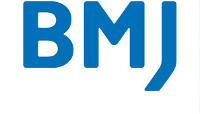Posted by Michael Wonder on 28 Jul 2016
Betting on hepatitis C: how financial speculation in drug development influences access to medicines

27 July 2016 - Victor Roy and Lawrence King argue that the acquisition strategies of drug companies magnify development costs and leave the public paying twice—for research and high priced medicines.
Sofosbuvir based medicines have marked an important breakthrough for patients with hepatitis C infection, offering cure rates of over 90%. The virus is a leading infectious killer globally, disproportionately affecting vulnerable groups such as people who inject drugs or have HIV/AIDS.
Even after discounts offered from a US list price of about $90 000 (£70 000; €80 000) per three month treatment course, however, the cost of these drugs, manufactured by Gilead Sciences, has challenged government budgets and led to rationing. Sofosbuvir’s pricing has been at the centre of a global debate over the affordability of prevailing systems of drug development, and the US Senate conducted an 18 month investigation into Gilead’s pricing strategy and its consequences for health budgets and patient access.

